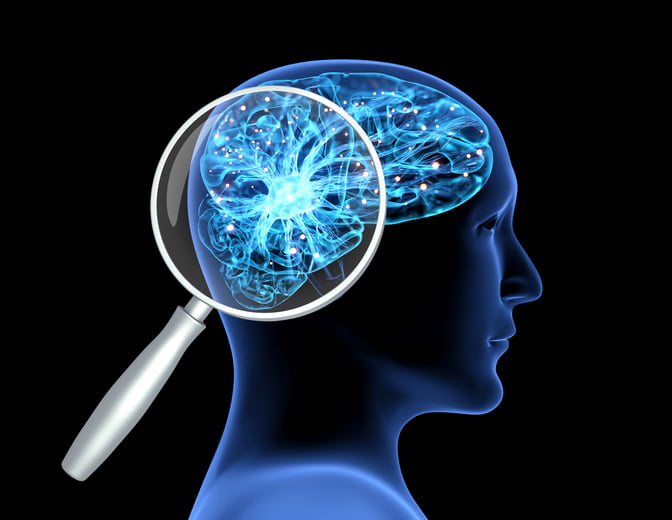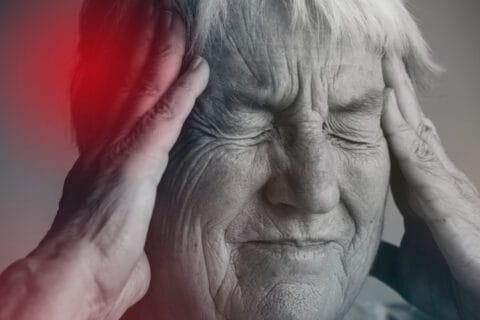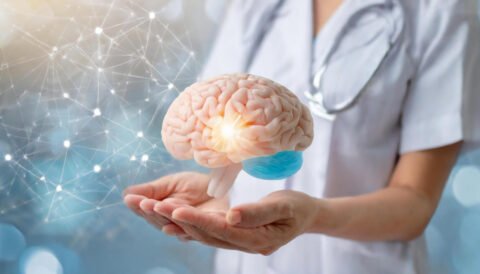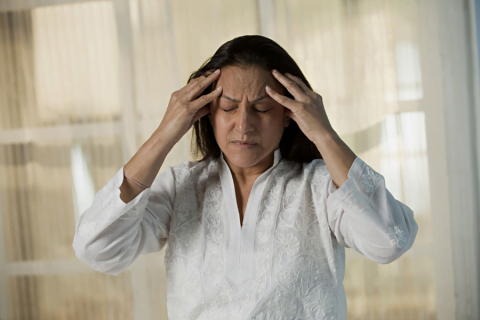Have you ever seen a friend or family member struggle with memory loss, forgetfulness, or difficulty performing daily tasks? These could be symptoms of dementia, a collection of disorders that impair thinking, memory, and behaviour. While dementia is difficult, recognising its different aspects can help you navigate this road. This blog digs thoroughly into the world of dementia, including its stages, causes, symptoms, possibilities for treatment, and effective management strategies.
What causes Dementia?
Dementia is not a singular disease; rather, it refers to a group of disorders characterised by a deterioration in cognitive function. This deterioration is significant enough to interfere with daily activities. Alzheimer’s disease is the most prevalent cause of dementia, which is distinguished by the accumulation of protein plaques and tangles in the brain. Other causes include vascular dementia (due to decreased blood supply to the brain), Lewy body dementia (caused by abnormal protein deposits known as Lewy bodies), and frontotemporal dementia (affecting specific parts of the frontal and temporal lobes).
Is Dementia hereditary? Read more here to find out: Is Dementia Hereditary?
Signs and Symptoms of Dementia
Dementia symptoms vary depending on the underlying cause and the stage of the condition. However, what causes dementia?
- Memory loss: Forgetting recent events, conversations, or people’s names.
- Difficulty with familiar tasks: Struggling with tasks previously done routinely, like cooking or managing finances.
- Problems with communication: Difficulty finding the right words, having trouble following conversations, or experiencing changes in writing.
- Disorientation: Confusion about time, place, or identity.
- Changes in behavior and mood: Increased anxiety, depression, withdrawal from social activities, or personality changes.
Treatment Options for Dementia
While there’s currently no cure for dementia, there are treatment approaches that can manage symptoms, improve quality of life, and slow down the progression. These include:
- Medications: Certain medications can help with memory, thinking, and behavioural symptoms.
- Cognitive therapy: Techniques to improve memory, problem-solving skills, and communication.
- Lifestyle interventions: Maintaining a healthy diet, regular exercise, social engagement, and mental stimulation.
Does High Blood Pressure Lead to Dementia?
High blood pressure increases the risk of vascular dementia, although it does not cause it. Uncontrolled high blood pressure can damage blood vessels, resulting in decreased blood supply to the brain and perhaps raising the risk of cognitive impairment. Controlling blood pressure with medication and lifestyle modifications is critical for general brain health.
Is Dementia Caused by the Food That We Eat?
Diet has a huge impact on brain health. While no single food can cause dementia, a poor diet rich in saturated fats, processed foods, and sugar may increase the risk. In contrast, a diet high in fruits, vegetables, whole grains, and healthy fats may help safeguard cognitive function.
The Stages of Alzheimer’s Disease
Alzheimer’s disease progresses through stages, with symptoms gradually worsening over time. Here’s a simplified breakdown:
- Mild Cognitive Impairment (MCI): Early memory lapses and difficulty with complex tasks.
- Early-Stage Alzheimer’s: Increased memory loss, confusion, and difficulty with daily activities.
- Mid-Stage Alzheimer’s: Significant memory loss, needing assistance with self-care and confusion about surroundings.
- Late-Stage Alzheimer’s: Severe memory loss, needing complete dependence on care, and difficulty with communication.
Beyond Alzheimer’s: Understanding Other Dementias
While Alzheimer’s is the most common form of dementia, other types exist with distinct features:
- Creutzfeldt-Jakob Disease (CJD): A rare, rapidly progressive, and fatal brain disorder.
- Frontotemporal Dementia (FTD): Affects personality, behavior, and language skills.
- Early-Onset Dementia: Dementia diagnosed before age 65, with causes like genetics or vascular problems.
Taking Charge: Lifestyle Factors and Dementia Risk
Certain lifestyle choices may influence the risk of developing dementia. These include:
- Physical activity: Regular exercise promotes blood flow to the brain and improves cognitive function.
- Diet: A healthy diet rich in brain-boosting nutrients is crucial.
- Social engagement: Staying socially connected can stimulate the brain and reduce isolation.
- Mental stimulation: Learning new skills, reading, and engaging in mentally stimulating activities can help keep your mind sharp.
The Progression of Dementia: Stages 1-7 (optional for some audiences)
While some resources categorise dementia stages differently, a common breakdown includes seven stages, outlining the progressive decline in cognitive function:
Stage 1 & 2: Normal Ageing vs. Early Dementia
These stages can be subtle. In Stage 1 (Normal Ageing), there may be instances of forgetfulness or misplaced items. Stage 2 (Early Dementia) may include more frequent memory lapses and trouble doing complex tasks. However, daily tasks remain manageable.
Stage 3 & 4: Moderate Dementia
As dementia proceeds to Stage 3 (Moderate Dementia), memory loss becomes increasingly severe. Confusion and difficulties in planning and organisation rise. Daily duties require some assistance. Stage 4 (Moderate-Severe Dementia) requires assistance with most everyday activities, such as dressing, bathing, and using the restroom.
Stage 5 & 6: Severe Dementia
Communication gets more difficult at Stage 5 (Severe Dementia). Speech may be limited, and full reliance on carers is required. Stage 6 (Very Severe Dementia) requires complete care for all everyday tasks. Physical and behavioural changes could become more prominent.
Stage 7: End-of-Life Care
Stage 7 (End-of-Life Care) represents the most advanced stage of dementia. Individuals may lose their ability to respond to their surroundings and need ongoing care.
It’s important to remember that this is a general progression, and the experience of dementia can vary greatly.
Longevity and Prognosis for Dementia Patients
The life expectancy of someone with dementia is determined by several factors, including the kind and degree of dementia, overall health, and availability of care. Life expectancy after a dementia diagnosis might vary from a few years to more than a decade. Catching early signs of Dementia and adequate care can dramatically improve the quality of life while slowing the development.
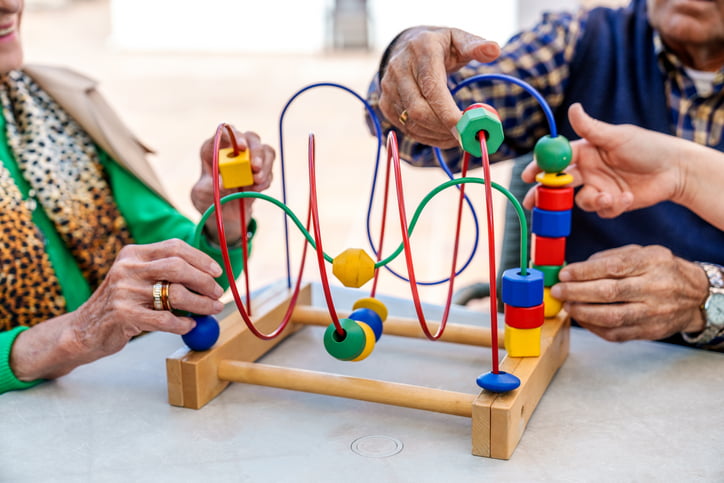
Addressing Anxiety in Dementia Patients: A Deeper Look
Anxiety in dementia patients can manifest in various ways, including:
- Restlessness and agitation: Pacing, fidgeting, or verbal outbursts can be signs of underlying anxiety.
- Social withdrawal: Avoiding social interaction due to fear or confusion.
- Sleep problems: Difficulty falling asleep or staying asleep due to worry.
- Physical symptoms: Increased heart rate, sweating, or shortness of breath.
Understanding the cause is crucial for effective management. Here are some common triggers for anxiety in dementia patients:
- Changes in routine or environment: Moving to a new care facility or even rearranging furniture at home can be disorienting and anxiety-provoking.
- Difficulty communicating needs: The frustration of not being able to express themselves clearly can lead to anxiety.
- Pain or discomfort: Underlying medical issues can cause physical discomfort, triggering anxiety.
- Sensory overload: Too much noise, bright lights, or crowded spaces can be overwhelming for someone with dementia.
Here are some techniques to manage anxiety in dementia patients:
- Relaxation Techniques: Deep breathing exercises, progressive muscle relaxation, and guided imagery can help calm the nervous system.
- Music Therapy: Soothing music can promote relaxation and reduce agitation.
- Validation Therapy: Acknowledge and validate the patient’s feelings without trying to correct them. This can help them feel understood and less anxious.
- Pet Therapy: Interacting with a friendly pet can provide comfort and reduce stress.
- Sensory Activities: Gentle massages, aromatherapy, or nature walks can provide calming sensory input.
- Creating a Safe and Familiar Environment: A predictable routine and familiar surroundings can help reduce anxiety.
- Medication: In some cases, medication may be necessary to manage severe anxiety symptoms. It’s important to consult with a healthcare professional to determine the best course of treatment.
Remember, patience and a gentle approach are key. Here are some additional tips:
- Speak slowly and clearly.
- Use simple language and short sentences.
- Maintain eye contact and offer reassurance.
- Provide choices whenever possible, even if they seem small.
- Avoid arguing or correcting them.
Coping with Advanced Stage Dementia: A Caregiver’s Journey
As dementia progresses, the focus of care shifts from managing symptoms to maximising comfort and quality of life. Here’s a deeper look at the tips mentioned earlier:
- Focus on Comfort and Quality of Life: Pain management becomes even more crucial. Ensure the physical environment is comfortable and caters to the patient’s needs.
- Maintain a Calm and Reassuring Presence: Speak in a soothing voice and offer physical comfort like holding hands. A calm and familiar presence can provide a sense of security.
- Utilise Pain Management Techniques: Regularly assess for pain and discomfort. Explore pain management options with healthcare professionals, which may include medication, massage, or positioning techniques.
Beyond these tips, here are some additional considerations for caregivers:
- Self-Care is Essential: Caring for someone with advanced dementia can be emotionally draining. Make time for activities you enjoy and seek support from friends, family, or support groups.
- Respite Care: Consider temporary care options to give yourself a break and avoid burnout.
- Advance Directives: Discuss end-of-life care wishes with the patient and their healthcare professional to ensure their preferences are honoured.
Remember, you are not alone in this journey. There are numerous resources available to support you and your loved one.
Reducing Dementia Risk: Strategies for Prevention
While there’s no guaranteed way to prevent dementia, certain lifestyle choices may help reduce the risk:
- Maintain a healthy diet.
- Engage in regular physical activity.
- Challenge your mind with stimulating activities.
- Prioritise quality sleep.
- Manage stress effectively.
- Maintain strong social connections.

Promising Research and Future Directions in Dementia Treatment: A Beacon of Hope
While there is presently no treatment for dementia, continuous research provides a ray of hope for the future. Here’s a closer look at some of the exciting breakthroughs and areas of exploration:
1. New Medications to Slow Progression:
- Anti-amyloid therapies: These medications aim to reduce the buildup of amyloid plaques, a hallmark of Alzheimer’s disease. While some initial trials haven’t shown significant benefits on cognitive function, researchers are refining these approaches and exploring combination therapies.
- Tau-targeting therapies: Tau protein tangles are another pathological feature of Alzheimer’s. Medications are being developed to target and prevent the formation of these tangles, potentially slowing down the disease process.
- Anti-inflammatory drugs: Chronic inflammation in the brain is linked to dementia. Researchers are investigating drugs that can modulate the immune system and reduce inflammation, potentially protecting brain cells.
2. Therapies Targeting Underlying Causes:
- Gene therapy: This approach involves introducing healthy genes into brain cells to potentially alter the course of the disease. Gene therapy for dementia is still in its early signs, but it holds promise for future treatment options.
- Stem cell therapy: Researchers are exploring the potential of stem cells to repair damaged brain tissue and promote the growth of new neurons. While this field is actively being investigated, there are still ethical and safety considerations to address.
- Lifestyle interventions as therapy: Research suggests that a healthy lifestyle, including a balanced diet, regular exercise, and cognitive stimulation, may not only reduce dementia risk but also potentially slow down its progression. Studies are ongoing to explore how these factors can be incorporated as therapeutic interventions.
3. Early Detection Methods:
- Biomarkers: Identifying biological markers in blood, cerebrospinal fluid, or brain scans could allow for earlier detection of dementia, enabling intervention at a stage when treatment might be more effective.
- Imaging techniques: Advancements in brain imaging technologies like PET scans and advanced MRI are helping researchers better understand the progression of dementia and may lead to earlier and more accurate diagnosis.
- Cognitive assessments: Developing more sensitive and accessible cognitive tests could play a crucial role in early detection, allowing for timely intervention and improved patient outcomes.
The Future of Dementia Treatment: A Collaborative Effort
Dementia research is a complicated and multidimensional initiative. Collaboration among scientists, researchers, pharmaceutical companies, and healthcare practitioners is crucial to accelerate development. Furthermore, improved public awareness and scientific funding are required to bring these hopeful developments to completion.
It’s worth noting that, while some study topics offer a bright future, big breakthroughs may take years. However, continuous efforts and creative approaches lay a solid foundation for future research into effective dementia treatments and eventual cures.
Supporting Caregivers: Resources and Support Networks
Have you ever heard something about dementia that didn’t sound quite right? Perhaps you overheard a conversation or saw a social media post with confusing information. Finding credible sources of health information is harder than ever in modern times. Check out our Ivory Recommends for trusted recommendations and resources.
- Alzheimer’s Association: [Alzheimer’s Association alz.org]
- National Family Caregiver Support Program: [National Family Caregiver Support Program caregiver.gov]
- Dementia Support Groups: Many local organisations offer support groups for caregivers.
- Dementia India Alliance Helpline: Save the number —8585990990— and share it far and wide. You never know who might be in need of a lifeline in their fight against Dementia. They operate Monday to Saturday from 8 am to 6 pm. For more information on Dementia India Alliance, visit their website: Dementia India Alliance.
Conclusion
After understanding what causes Dementia? You understand that Dementia can be an uphill battle, but with education, support, and early intervention, individuals and carers can successfully manage it. Remember, you are not alone. Understanding dementia, its stages, and available resources can allow you to approach this challenge with compassion and proactive care.
Frequently Asked Questions
Q: What are the first signs of dementia?
A: Early signs of Dementia include forgetfulness, difficulty with familiar tasks, confusion, personality changes, and problems with communication.
Q: How is dementia diagnosed?
A: Doctors diagnose dementia through a combination of memory tests, medical history, physical exams, and sometimes brain scans.
Q: Can dementia be cured or reversed?
A: There’s currently no cure, but medications and lifestyle changes can manage symptoms and slow progression.
Q: What lifestyle changes can help prevent dementia?
A: Healthy diet, exercise, mental stimulation, social engagement, and good sleep are all beneficial.
Q: What are the different types of dementia?
A: Alzheimer’s is most common, but others include vascular dementia, Lewy body dementia, and frontotemporal dementia.
Q: How does Alzheimer’s differ from other forms of dementia?
A: Alzheimer’s is characterised by amyloid plaques and tau tangles in the brain. Other dementias may have different underlying causes.
Q: What medications are available to treat dementia symptoms?
A: Medications can help with memory, thinking, and behaviour, but don’t stop the disease progression.
Q: How can caregivers support a person with dementia?
A: Create a safe environment, maintain routines, provide reassurance, and seek support groups.
Q: What is the average life expectancy after a dementia diagnosis?
A: It varies depending on the type and stage of dementia, but can range from a few years to over a decade.
Q: Are there any new treatments or research breakthroughs for dementia?
A: Yes! Researchers are exploring new medications, gene therapy, stem cell therapy, and catching early signs of Dementia. There’s hope for the future!
